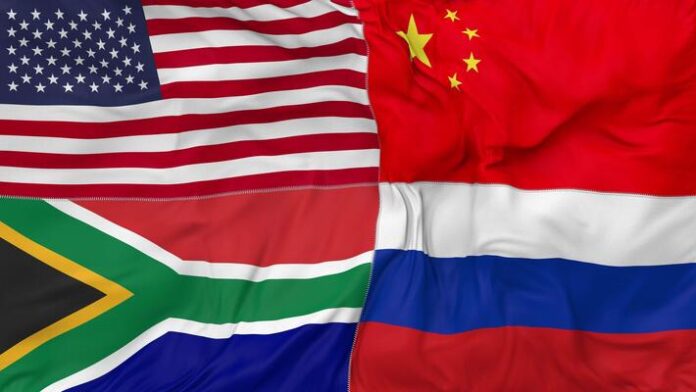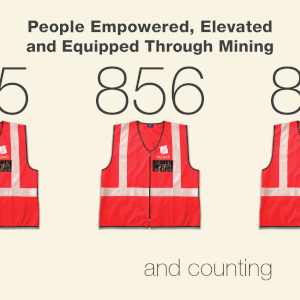By Thobile Jiwulane
While relations between South Africa and Donald Trump’s America have deteriorated, albeit with difficult attempts to restore them, the rest of the Western world is moving in the opposite direction to seek better cooperation with Pretoria.
The recent separate visits to several capitals of European Union member states by Deputy President Paul Mashatile and Minister of International Relations and Co-operation Ronald Lamola painted a different and contrasting picture to what relations between Pretoria and Washington have become since Trump returned to power officially on 20 January. There is much more antagonism in their co-operation now than during Trump’s first administration, where the two countries enjoyed harmonious relations.
Even former South African President Thabo Mbeki recently questioned Trump’s reversal regarding South Africa. During his previous term in the White House, Trump fostered a friendly and cooperative relationship with South Africa, albeit with occasional tweets criticising its land policy. According to Mbeki, the Republican Party worked collaboratively with the South African government and the African National Congress (ANC), then ruling party, creating a diplomatic environment characterised by open dialogue and mutual respect. This partnership allowed for productive discussions on various initiatives and strengthened the ties between the two nations during that period.
Trump appointed a South African-born ambassador, Lana Marks, to strengthen relations with South Africa, underscoring an eagerness to work better with Pretoria. Marks stated upon her arrival that she wanted to position the U.S. as South Africa’s largest trading partner, surpassing China and the combined EU. “We can’t settle for the third best, we always want to be at the top,” Marks said in her first and introductory media briefing at the US Consulate in Sandton, Johannesburg, at the time.
But just as his second term starts with a four-year break in-between, Trump has become a different man who is intent on punishing South Africa for what he calls ‘bad things’ that are happening against Afrikaners in South Africa. However, so far, it’s only Trump, his team, and his South African right-wing supporters who continuously make these claims. But the rest of the world has dismissed them as ‘fake news’.
In South Africa, only the right-wing media and conservative outlets seem to take Trump’s claims, seriously. But the progressive establishment media in the country have pooh-poohed the claims in their editorials and news columns, some even demonstrating how unfounded they are.
From having to answer to the false anti-white genocide allegations to having to face tough sanctions in the form of social services aid withdrawal and exorbitant tariffs imposed by Trump, Pretoria found itself under pressure from the world’s most powerful economic superpower. Faced with similar high tariffs from the US, Europe and South Africa found themselves on the same boat. They realised they have a mission to rescue one another from the US beast that swallows friends and foes alike.
In an interesting development, while Cyril Ramaphosa and a senior powerful delegation of Cabinet Ministers, business people and high-profile sports personalities were invited by Trump to Washington to explain about the white genocide and land theft allegations and to discuss the improvement of their economic relations, Deputy, Paul Mashatile, leading an equally strong delegation of Ministers, Deputy Ministers and business, was in France where he signed some important economic deals with the Emmanuel Macron government.
France has more than 400 French companies in South Africa, employing over 65,000 people. The talks between them could spark more investments by France in South Africa, which were part of discussions at their inaugural SA-France Investment Conference held in Paris on 22 May. Macron reaffirmed France’s commitment to continue working with South Africa across various multilateral platforms for diplomacy and peace. Both countries advocate for a world order founded on multilateralism.
In another positive development for South Africa from Europe, Mashatile’s visit was followed by Minister Lamola’s working tour of the Netherlands. The Minister and his counterpart Caspar Veldkamp co-chaired the 4th biennial Joint Cooperation Commission (JCC) in the Hague. The JCC is a cornerstone of bilateral relations, fostering collaboration in areas critical to sustainable development and inclusive growth. Key focal points of this year’s discussions include advancing cooperation in agriculture, water and waste management, and energy security, reflecting both nations’ dedication to climate resilience and food sustainability.
These visits added to the European Union, which pledged various supports for South Africa. As a group and as individual EU member states, they expressed a strong backing for South Africa to host a successful G20 as president for 2024/2025 while also offering to continue various forms of aid to the country.
This leaves the US as the only state not coming to the summit. This weekend, Foreign Secretary Marco Rubio reiterated that America would not attend the G20 at both the foreign ministerial and Presidential levels, alluding to the baseless Afrikaner issue, which has already been proven to be false. This is despite Ramaphosa’s visit to Trump to iron out their differences.
However, local experts in South Africa say Trump’s dealings with Pretoria should not be surprising. They assert that Trump came like a messiah to the far-right worldwide, including those in South Africa. Trump and others are intent on creating a new world order dominated by white supremacist nationalism. A consolidation of the far right is underway in America and Europe and would spread elsewhere in the world. The Trump administration’s agenda, so the analysts argue, is not to seriously improve the US-SA relations because doing so would defeat the grand plan of creating a right-leaning order in the world.
If at all, in South Africa, he wants to keep some trade ties that would benefit the US economy, considering the country’s mineral wealth. Otherwise, Trump’s ultimate aim is political – to strengthen the white right-wing in the country and elsewhere, as he had begun interacting with some in the European countries such as Britain, Germany and Eastern Europe.
He recognizes that the assertions of Afrikaner genocide and the widespread expropriation of white-owned land are unfounded. Nevertheless, he believes it is crucial to unearth evidence or narratives that could bolster his argument, aiming to exacerbate tensions in the already strained relations with South Africa. His approach seems to prioritise the amplification of divisive rhetoric over an honest examination of the complex historical and social dynamics at play in South Africa.
He hopes, alongside his white supporters in South Africa, that this situation will ultimately provide a pretext for the minority Afrikaner community to advocate for secession. Their claim would be rooted in feelings of oppression and harassment under a democracy led by the black majority.
With Trump’s return to the White House, the white supremacists in the country felt emboldened to renew their activities to undermine the new democratic order while riding on their nostalgia for the apartheid past. Trump has significantly influenced the resurgence of South Africa’s racial polarisation, a phenomenon that had shown signs of diminishing following the death of Eugene Terre’Blanche, who was a prominent figure leading the extremist neo-Nazi organisation known as the Afrikaner Weerstandsbeweging (Afrikaner Resistance Movement) or AWB, which dissolved after he passed on.
The US President aligned himself with the AWB offshoots, starting meekly during his first administration in 2016 and becoming more assertive this year. Remarkably, prior to Trump’s return to the political arena, these organisations had been largely dormant, their activities confined to civil society efforts. They focused on initiatives such as providing nutritious meals through soup kitchens, offering shelter to the homeless whites, and advocating for the civic rights of Afrikaners who believed in their message. One of them initiated private prosecutions of unresolved criminal matters ostensibly as a way to expose the weakness of the current state system.
But the group has no national footprint or influence, and its operational area is only around the capital, Pretoria. Even the Afrikaners who established a self-proclaimed white-only homeland, Orania, in the Northern Cape province, remained isolated and powerless beyond small business and small-holdings activities within the white communal enclave.
Trump prefers to align himself with these smaller groups, hoping they will effectively promote his right-wing agenda and resonate with his political interests. These groups, often operating on the fringes, share a common ideology that reflects his views, making collaboration with them a strategic choice for his overall objectives.
South Africa is deeply indebted to China and Russia. This complex relationship is rooted in the historical context of the crucial support they lent to the black liberation movement to fight white apartheid leading up to freedom and democracy. This forged a lasting bond that influences South Africa’s diplomatic engagements to this day.
South Africa could potentially rely on support from Europe and Pretoria’s two Global South partners. However, Ramaphosa has realised that maintaining working diplomatic and trade relations with the US is still essential, considering its position as the country’s second-largest single trade partner after China, with over 600 firms invested in the country for years. This approach also gives credence to South Africa’s declared impartiality.


